
Being toxic is like body odor. We are oblivious to the discomfort we create for others. A colleague described a healthcare Vice President that is a bully as well as a Dr. Jekyll and Mr. Hyde personality. The first question is obvious. Who promotes these people? The offending executive must be like a blind umpire calling balls and strikes behind the plate. My popular YouTube video, Is Your Boss an Idiot? Five clues to know for sure helps clarify idiocy in a boss. However, it does not share insight into what makes someone toxic in the workplace. Being an idiot and being toxic may overlap, yet they are not the same. Human toxicity is more common than you might think. I poll audiences regularly, and it seems most people know at least one toxic person at work. More specifically, if you do not know anyone toxic at work, you might be the one!
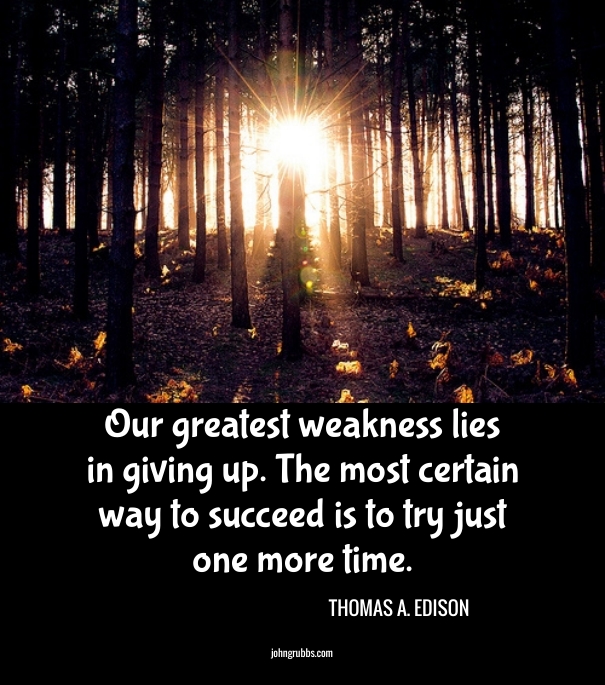
Every story needs a hero. Every hero needs a villain. A hero needs a guide or teacher to defeat the antagonist and win the girl, find the treasure, survive the storm, or become the winner in the game of life. Why is this plot repeated over and over in movies and books since the beginning of the human condition? The simple answer is we can all relate to overcoming something, battling something (or someone) in order to achieve a desired outcome. We all get it and it keeps our attention. In his book, “Building a Storybrand”, Donald Miller relates this simplicity to overcoming the noise of life.

Culture eats strategy for breakfast! These words from the late Peter Drucker are a powerful indictment for most aspiring leaders. Accountability has traditionally been viewed as a single concept that is desired yet elusive for most companies. In truth, there are two types of accountability and each must be developed independently for an organization to be successful. Building an accountable culture requires efficacy from both perspectives. In fact, accountability has been misdefined in today’s business vernacular. We often use accountability and responsibility as interchangeable terms. Who are you going to hold accountable? Who are you going to hold responsible? When misused in this way, both terms are really about blame.

Passengers in first class are convinced the ship will survive the collision with the iceberg. After all, the Titanic is unsinkable. Floors below the cabins are filling with water and the bulkheads are becoming flooded. People are drowning while the wine and music flows above. The executives at Sears and Toys R Us are planning next year’s strategy, convinced that the slowing sales are just another market dip as they have experienced many times in the past. Stores are becoming vacant and people are being let go with nothing to do.
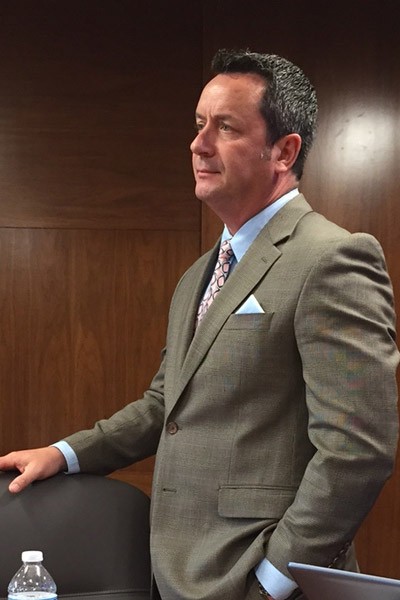
Being busy does not mean you are effective. The higher you are in an organization, the more demand exists for your time. If not disciplined, schedules expand like that “great-stuff” expanding foam to fill each day. A full calendar is not a sign of efficacy but rather a lack of decision making and effective delegation. Temporary activities and conditions may create periods that require more time. However a chronic full calendar is a serious problem for most aspiring leaders. Sadly, too many people equate activity with success.
CEOs are vaccinated to prevent mental health issues. The success that comes from leading an organization makes them superhuman when it comes to their own mental challenges. Being the leader of an organization protects them and makes them invulnerable to conditions that impact one in five of the rest of humanity. It is easy for CEOs to admit they need help and not be judged by the public, their employees, or their board. Balderdash! Of course these are all false statements.
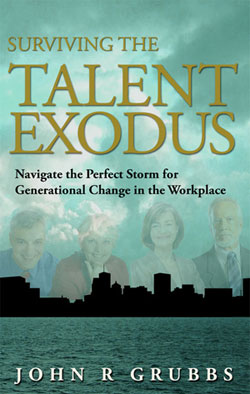
In 2010, I predicted what the workplace would be like in the year 2020. Chapter 18 of "Surviving the Talent Exodus" is a two part examination. The first part describes the workplace as it would become. The second part is a story about a fictitious character named Trent, a 27 year old robotic technician considering a job change. We called millennials Generation Y in the old days. How much do you think has or is coming true? You be the judge!
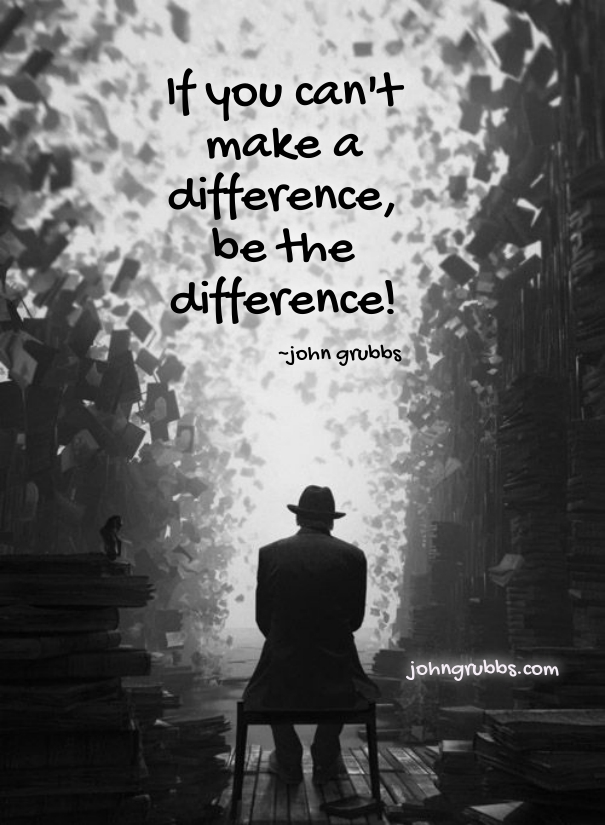
“I will not pay for employees to train while I am paying them to work” said the CEO of a company. We are rapidly approaching 2019 and this thinking is a reality in the business world. It reminds me of the CFO that told the CEO, “If we train our people they will leave for a better job”. The CEO replied, “What if we don’t train them and they stay?” This polarized thinking forms the foundation for the challenge facing organizations in this hyperactive job market.

What is the plural of mongoose? In his famous eighties song Infatuation, Rod Stewart opined, “oh no not again, it hurts so good, I don’t understand” about a new love in his life. Love may not be the emotion leaders experience as we adjust to another generation entering the workforce. Tragically, many organizations (and supervisors) have not adjusted to millennials and are about to become two generations behind in reality. What does this mean for the modern workplace?

I now completely own the fact that I was a “driver” dad with my first son. Drivers push the child into every next stage in life. We push them to walk, play ball, read, and achieve. In retrospect, I believe this style is the genetic default. When humans did not live as long, survival required children to mature at a much faster rate. Drivers feel an overwhelming urge to push children to be better sooner.

Steve Jobs famously said “A” players are twice as valuable as “B” players. He went on to indicate that the ratio was 25:1 for software developers. Regardless of the occupation, this reality presents an incredible opportunity for most organizations. With people in such high demand, it is tempting to settle for “B” players. It is tempting to play with the team you have regardless of current performance reality.
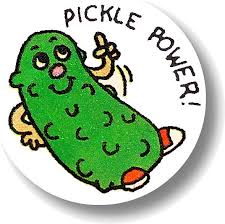
I recently carried a gallon of pickles on stage in front of nearly 800 people. I sat the jar on the large podium and went to work. I made a point to refer to the jar several times during my speech. I even gave away 3 small shots of pickle juice to members of the audience that were brave enough to come on stage during my presentation. For the rest of the conference, people would see me and say “hey, you are the pickle guy.” I am totally ok with that reference as long as they remember the message.